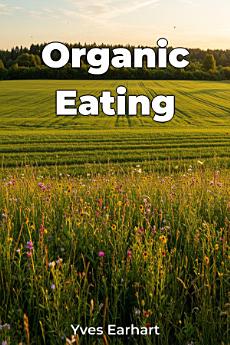Organic Eating
Mar 2025 · Publifye AS
Ebook
84
Pages
family_home
Eligible
info
reportRatings and reviews aren’t verified Learn More
About this ebook
Organic Eating explores the complex world of organic food, moving beyond simple marketing claims to examine the science behind its potential benefits and limitations. It investigates whether organic food truly offers superior nutritional content and reduces environmental impact compared to conventional farming. One intriguing aspect is the exploration into whether the nutritional differences between organic and conventionally grown foods are less pronounced than commonly believed, and the environmental benefits are contingent upon specific farming practices and regional contexts. Also, the book addresses the core question of whether the higher costs and lower yields of organic agriculture make it a viable global food solution.
The book begins by defining organic agriculture and tracing its history before dissecting the nutrient content and environmental impact of organic versus conventional methods. It examines how factors like soil management and fertilization techniques affect the nutritional profiles of foods and evaluates the impact of organic farming on biodiversity, soil health, water quality, and greenhouse gas emissions. Organic Eating also considers the economic and social implications, including affordability and the role of organic farming in sustainable food systems.
Ultimately, it provides readers with practical strategies for making informed food choices, encouraging a nuanced and evidence-based understanding of sustainable options.
Rate this ebook
Tell us what you think.
Reading information
Smartphones and tablets
Install the Google Play Books app for Android and iPad/iPhone. It syncs automatically with your account and allows you to read online or offline wherever you are.
Laptops and computers
You can listen to audiobooks purchased on Google Play using your computer's web browser.
eReaders and other devices
To read on e-ink devices like Kobo eReaders, you'll need to download a file and transfer it to your device. Follow the detailed Help Center instructions to transfer the files to supported eReaders.








